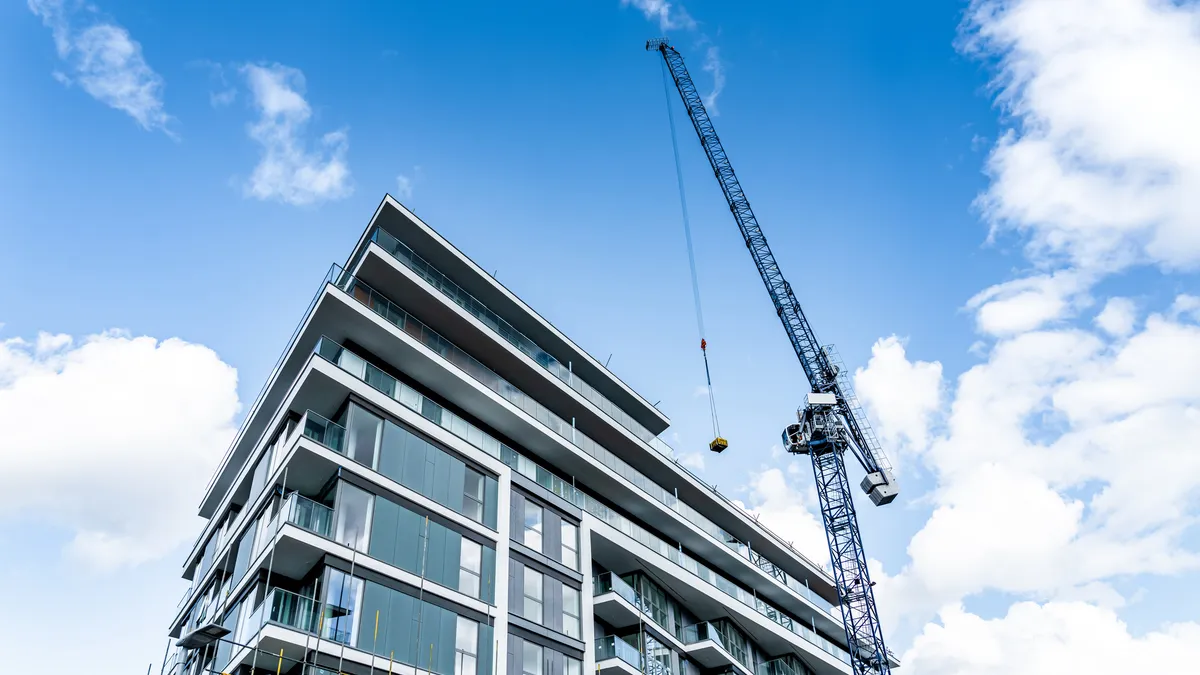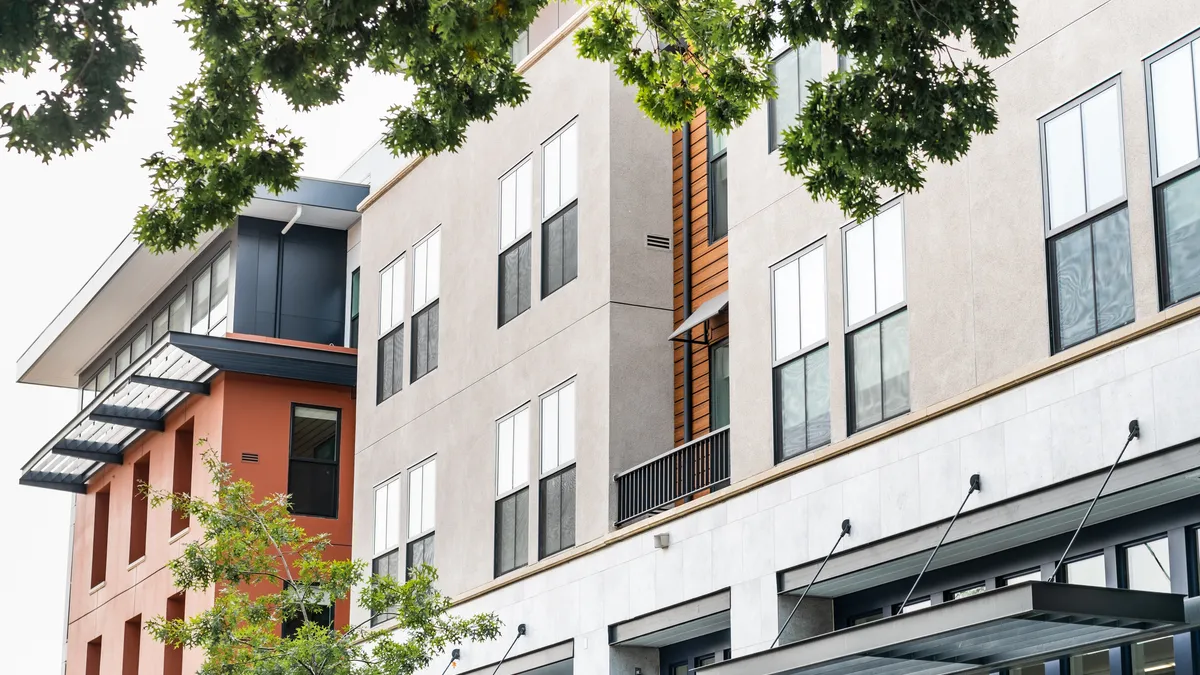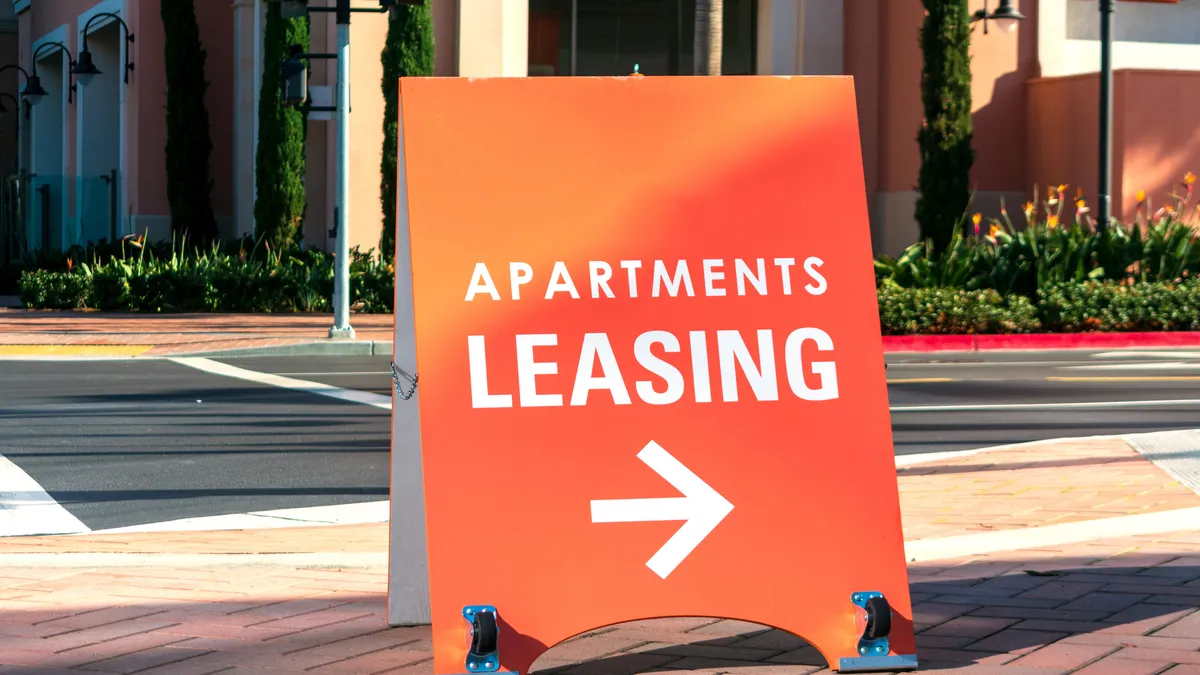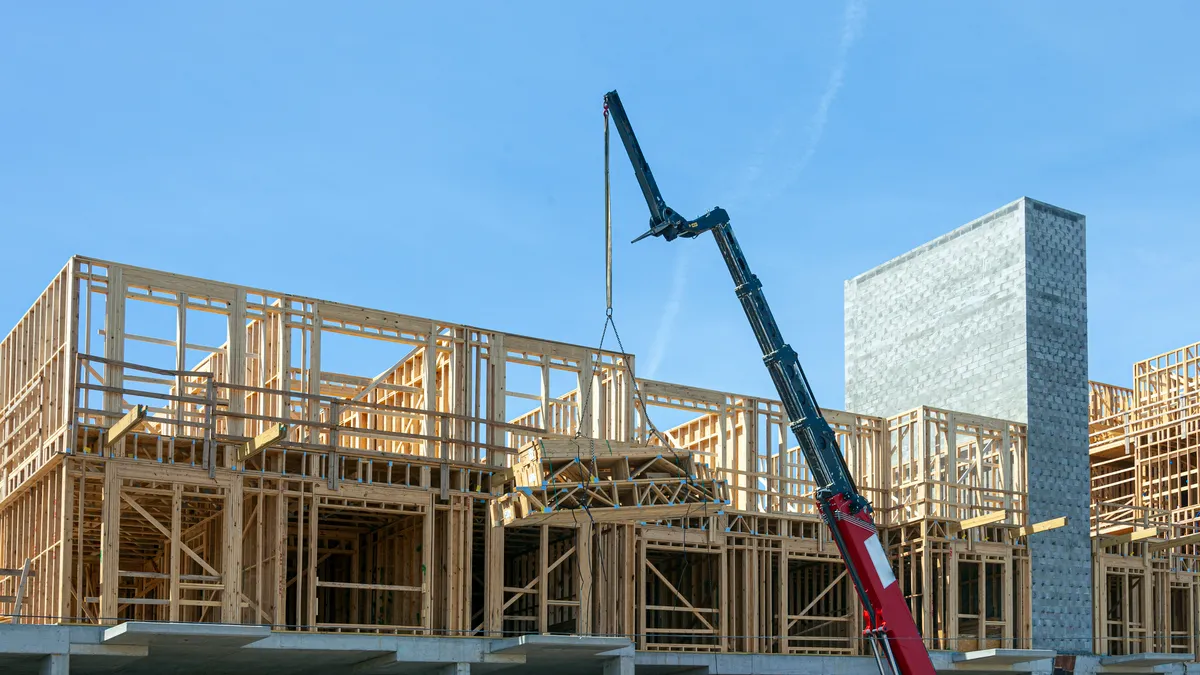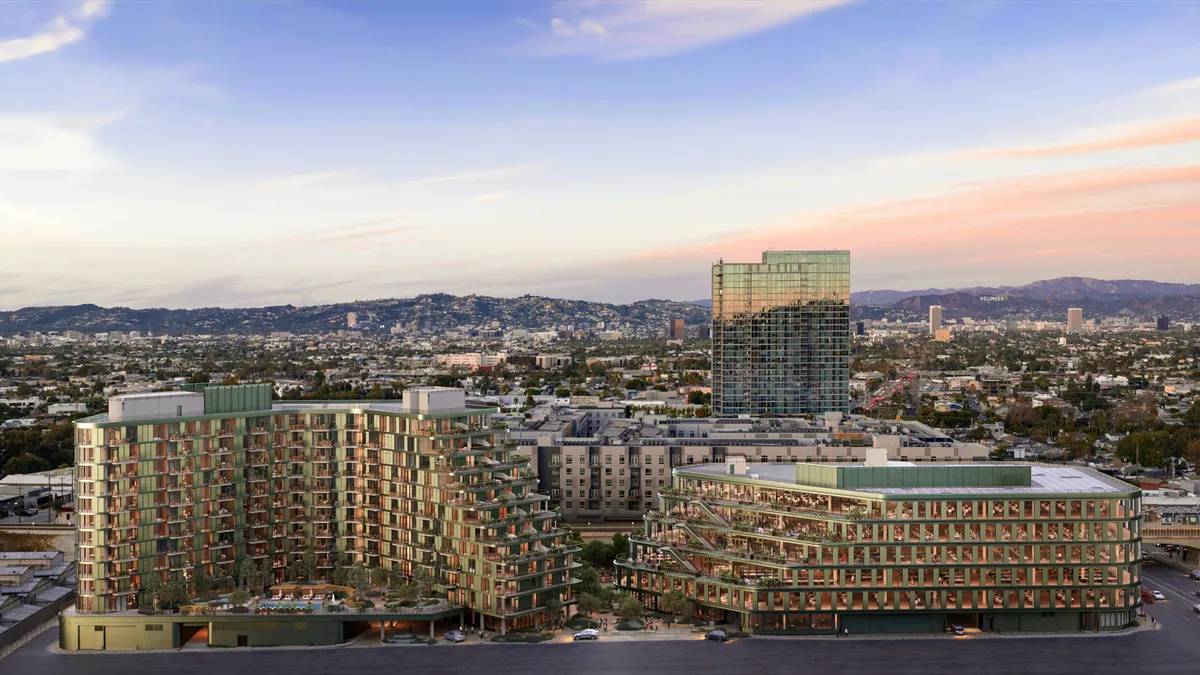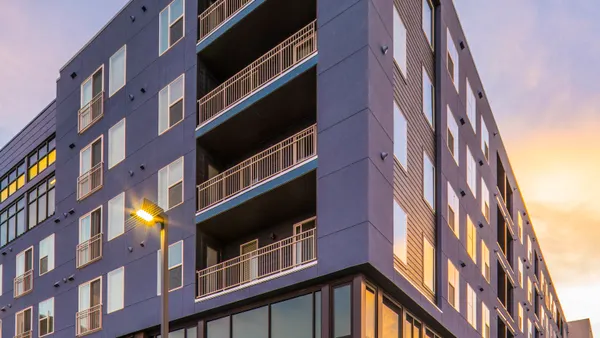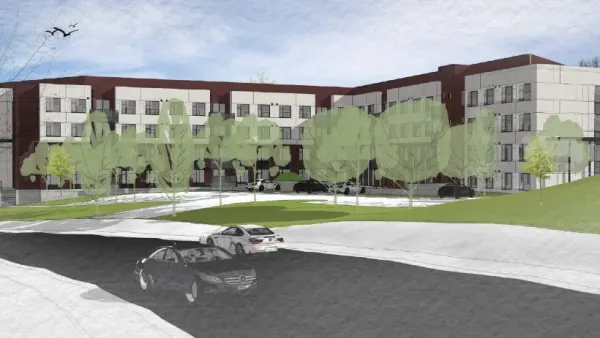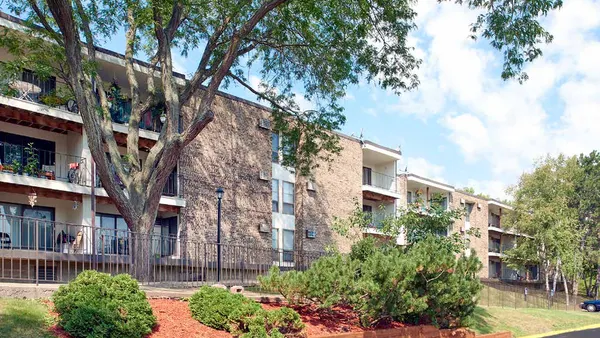Coming into 2024, Ryan Davis, CEO of Witten Advisors, a Dallas-based firm that provides apartment companies with advisory services, predicted apartment starts would fall to around 280,000 units nationally.
However, the year provided a pleasant surprise: Developers broke ground on roughly 300,000 new units. Lower-cost apartments drove this trend, as traditional affordable units accounted for a higher percentage of new starts.
In addition, Davis noted that local governments — staring at a housing affordability crisis — are encouraging new apartment construction, also boosting starts.
“What's different now compared to how the market was 15 or 20 years ago is that these jurisdictions have gotten much more creative and much more willing to make deals work, in terms of giving a density bonus for setting aside a portion of the units as geared to 80% to 200% of area median income, for instance,” Davis said.
However, that support may not be enough to keep starts above 2024 levels this year. Here are three things to watch for apartment development in 2025:
Starts will bottom out
It's still hard to make conventional deals work, which will push starts to their lowest levels in years at about 250,000 apartments in 2025, according to Davis.
“The pure market-rate deal right now just really doesn't make sense from a financial standpoint,” Davis said.
Private equity is serving as the gatekeeper, Davis said, and those firms have a limited appetite for new construction. Others agree.

“Most of the institutional investors we meet with are focused on buying at discount-to-replacement costs,” said David Reynolds, president of investment management at Boca Raton, Florida-based apartment developer and owner Mill Creek Residential, the No. 2 apartment builder on the National Multifamily Housing Council’s most current list. “But they all acknowledge, at some point, they'll pivot to development.”
As construction equity continues to tighten, the small builders that have emerged in recent years will be the most affected, according to Davis.
“That upsurge in new players in the space is going to go away,” he said.
Equity will focus on the bigger firms with more established track records, like the Mill Creeks of the world. “It's going to be much more tilted toward some of the more well-capitalized developers across the nation,” Davis said.
Another obstacle is simply projecting rents for new projects. Developers still need to start to see rents and concessions on new lease-ups to get a feel for what target pro forma rents will be on new developments, according to Jay Parsons, head of investment strategy at Lubbock, Texas-based owner and operator Madera Residential.
“Right now, that number has been tough to pin down because we've seen so many concessions and cuts to the base rent for these new lease-ups,” Parsons said. “So that makes it harder to plan out another new project when you know the rents are a little bit of a moving target and moving in the wrong direction.”
Bigger firms will seize on the opportunity
For those firms that can close deals, the opportunity to open leasing in a market with little new competition in 2027 and 2028 is very enticing.
“Anything that started now is delivering and stabilizing in mid-2027,” Reynolds said. “For our 30 markets, we're expecting rental revenue growth to be at an increasing rate at that point in time. We really like the development opportunity a lot.”
The public companies, able to fund development from their balance sheets, will certainly be big players. For instance, Arlington, Virginia-based REIT AvalonBay Communities expects to increase starts from around $1 billion in 2024 to $1.5 billion in 2025.
“That asset won't be in lease-up until '26, and we feel by that point, we should be facing very little new competition and with a basis that we like quite a bit,” said Matt Birenbaum, AvalonBay Communities’ chief investment officer, on the REIT’s third-quarter earnings call in November.

But the REITs won’t be alone. Bigger private developers will also be in the game. “The bigger merchant builders will start to be able to sell recent lease-ups now that property values have recovered quite a bit,” Parsons said. “That will allow these developers to recycle capital into new projects.”
Charleston, South Carolina-based apartment developer Woodfield Development, the No. 16 developer on the NMHC’s most current list, plans to start around 10 projects, totaling roughly 2,500 units, in 2025. Milwaukee, Wisconsin-based owner, operator and developer Continental Properties broke ground on 3,517 units in 2024.
“2024 was our second-highest volume on an annualized basis,” said Jim Schloemer, co-founder and CEO of Continental. “I don't know if we'll get to that same number in 2025, but we'll get close. Unless there's a market change, and we have to be responsive to it, we anticipate somewhere north of 3,000 homes.”
Trump policies could be a wild card
Apartment executives are watching the incoming Trump administration as it promises widespread deportations of undocumented workers and potential tariffs.
For those in the development business, tariffs could be damaging. “New or increased tariffs have the potential to raise prices for a wide range of construction inputs, including items produced domestically that compete with imports,” said Ken Simonson, chief economist at the Associated General Contractors of America, told Construction Dive after the election.
However, many apartment developers don’t appear overly concerned yet. Like several multifamily executives, Bonifield thinks the tariff talk is being used to negotiate better trade deals.
“I tend to be in the camp that these are going to be very targeted, very strategic, very much used to negotiate fair trade deals, and are unlikely to be that inflationary,” Bonifield said.
However, Bonifield said large-scale deportations could put pressure on wages and, ultimately, construction costs, at a time when pricing pressures are finally starting to subside. “That could take us in the wrong direction on the cost of building these projects,” he said.

On the other hand, the arrival of the Trump administration, including Scott Turner, the nominee for HUD Secretary, could boost Opportunity Zone developments.
“President Trump has been a big advocate for the Opportunity Zone legislation that passed under him, and it looks like he may think about expanding or extending that legislation, which has led to a significant amount of apartment construction in those zones,” Parsons said. “So that can certainly be impactful.”
Parsons also thinks Trump could lower barriers to building housing, particularly on the affordable side.
“That's obviously very tough to do because housing construction is very local,” Parsons said. “But if he's able to make real headwinds there, that would potentially be impactful.”
Click here to sign up to receive multifamily and apartment news like this article in your inbox every weekday.


